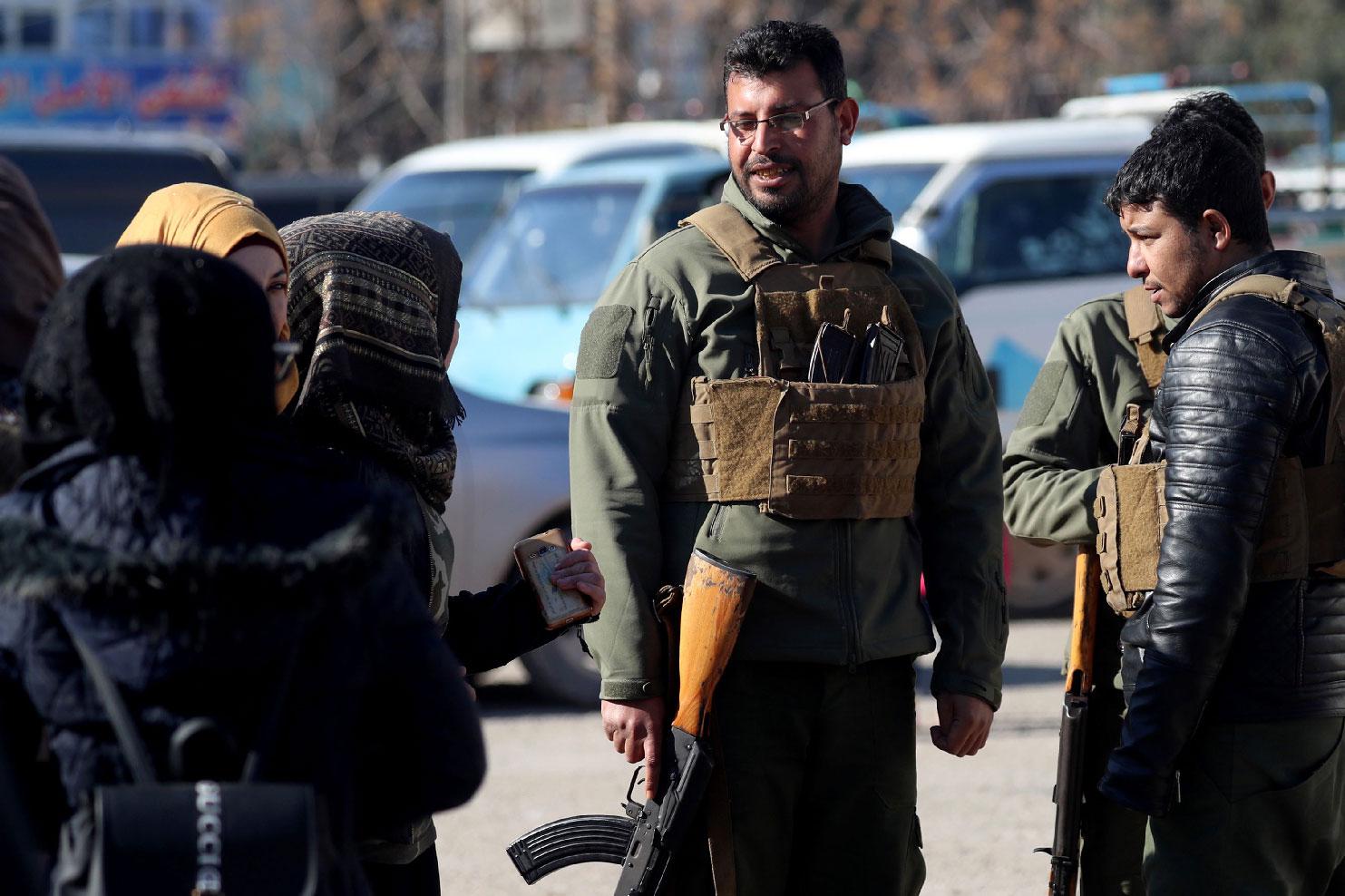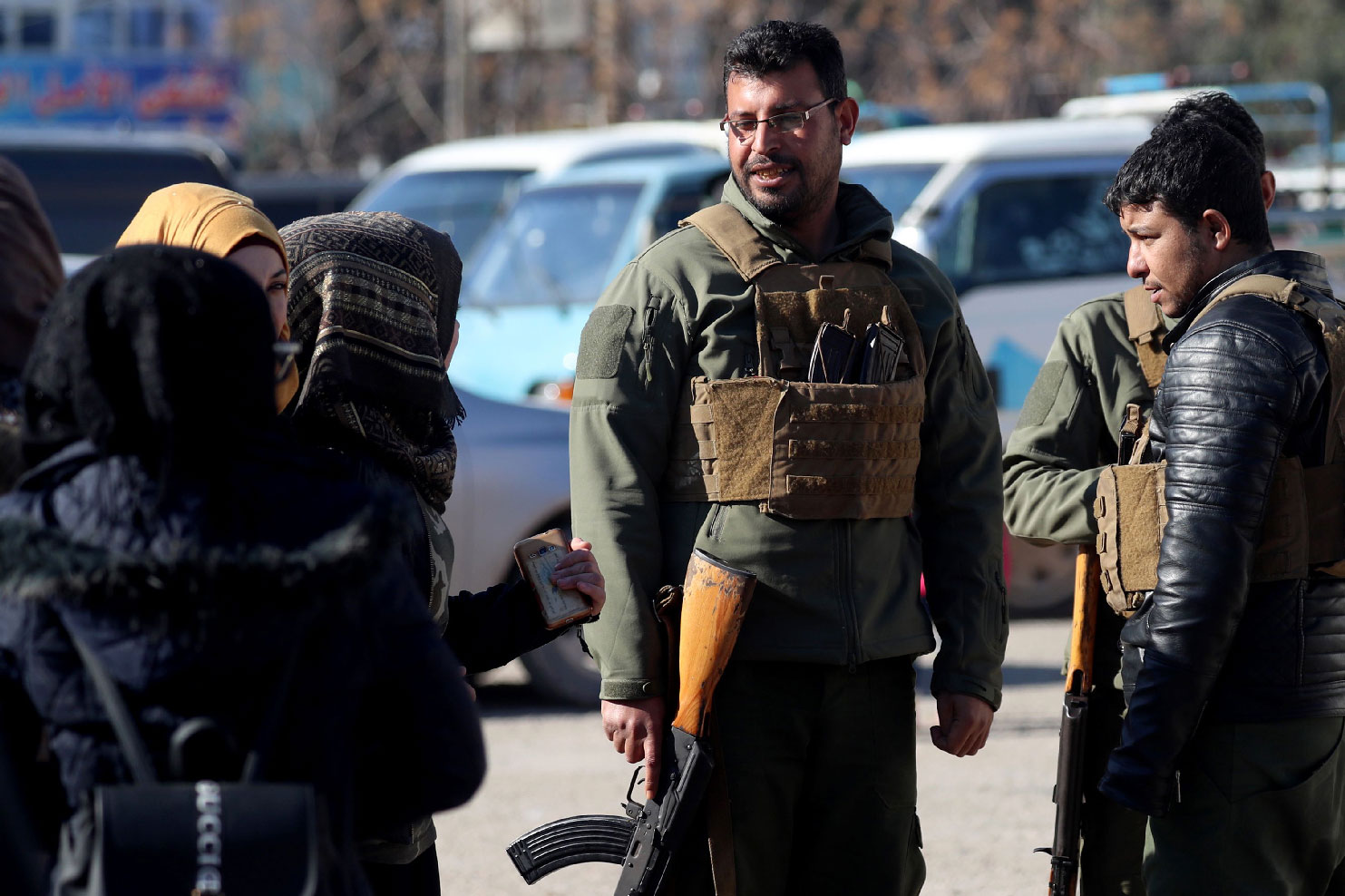Russia, Turkey pledge to coordinate on Syria after US pullout
MOSCOW - Russia and Turkey on Saturday agreed to coordinate ground operations in Syria after the shock announcement of a US military withdrawal, Moscow's top diplomat said.
President Donald Trump's move has already hastened a shift in alliances with Syrian troops deployed Friday in support of Kurdish forces around a strategic northern city. The Kurds, under threat from Ankara, had been supported by US forces.
"Of course we paid special attention to new circumstances which appeared in connection with the announced US military pullout," Russian Foreign Minister Sergei Lavrov said after talks with Turkish counterpart Mevlut Cavusoglu.
The Syrian deployment pleased ally Russia but upset Turkey ahead of Saturday's talks in Moscow.
"An understanding was reached of how military representatives of Russia and Turkey will continue to coordinate their steps on the ground under new conditions with a view to finally rooting out terrorist threats in Syria," Lavrov said.
On Friday, Russia also said it would host a three-way summit with Turkey and Iran on the Syrian conflict early next year following their last such meeting in September.
Cavusoglu confirmed the three countries would coordinate Syria operations, adding they also discussed plans to help refugees to return home.
"We will continue active work (and) coordination with our Russian colleagues and colleagues from Iran to speed up the arrival of a political settlement in the Syrian Republic," he said in remarks translated into Russian.
"We have the common desire to cleanse Syrian territory of any terrorist organisation, Cavusoglu added.
Lavrov said he was "optimistic" following the talks which included Russian and Turkish defence ministers Sergei Shoigu and Hulusi Akar.
Trump last week said he was pulling all 2,000 troops from Syria, declaring that Washington had achieved its objective as the Islamic State group had been "knocked" out.
The extremist movement, also known as ISIS, has lost nearly all its territory, although thousands of its jihadists are thought to remain in war-battered Syria.
Nearly eight years into Syria's deadly conflict, the US pullout has led to another key step in President Bashar al-Assad's Russian-backed drive to reassert control over the country.
The Syrian army announced its return to Manbij, a strategic city close to the Turkish border where Kurdish forces have been deployed since 2016 and where US-led coalition forces are also stationed.
A US withdrawal will leave them exposed to an assault by Turkey, which has thousands of proxy fighters in northern Syria and wants to crush Kurdish forces it considers terrorists.
Ankara reacted to the deployment of the Syrian regime forces by warning "all sides to stay away from provocative actions".
Conflicting reports
The Syrian forces deployed around Manbij at the request of the Kurds, creating a regime buffer arching across northern Syria that fully separates the Turkish army and its proxies from the Kurds.
But Abu Azeez Jaber still fears the US military withdrawal will see Turkish troops enter.
"People are terrified first of the Americans withdrawing, and second of the Turks entering," the 48-year-old cook said.
Since 2016, the strategic northern city on the Turkish border has been controlled by the Syrian Democratic Forces (SDF), an alliance of Kurdish and Arab fighters backed by the US-led coalition.
But after Trump last week suddenly said US troops would depart from Syria, Manbij residents are left dreading a long-threatened attack by Turkey.
The Syrian Observatory for Human Rights, a Britain-based war monitor, said around 300 government forces were sent to the area around the Arab-majority city.
"We haven't seen the Syrian army in the city, but we're hearing it will enter," Jaber added.
Nearly eight years into Syria's civil war, President Bashar al-Assad has set his sights on regaining north and northeastern parts of Syria from the Kurdish-led forces.
A local Manbij official on Friday however said pro-Damascus forces would not enter the actual city of Manbij under a deal brokered by regime ally Russia.
Local forces were nevertheless on high alert, and carefully inspected the identity papers and vehicles of all those entering Manbij.
Inside, well-armed fighters stood by trucks equipped with heavy machine guns deployed across the city's main streets.
On its outskirts, a US armoured vehicle led a coalition patrol of four white trucks. More coalition vehicles were also parked outside a US base inside Manbij.
Standing by his vegetable cart, 22-year-old street vendor Mohammad al-Mohammad said residents were scared.
"Some people are preparing to leave, while others are holed up at home," he said, dressed in a brown jacket, burn scars on his face.
"We have no idea what will happen to us," he added. "Every day, we hear conflicting reports."
Backed by the US-led coalition, the SDF has spearheaded the fight against the Islamic State group (IS) in Syria.
But Ankara says the Kurdish People's Protection Units (YPG) militia, which forms the bulk of the SDF's fighting forces, are a "terrorist" group linked to the outlawed Kurdistan Workers' Party (PKK) that has waged an insurgency against the Turkish state since 1984.
Turkey has previously led two military campaigns inside Syria, most recently seizing the northwestern enclave of Afrin from Kurdish forces in March.
Earlier this week, Turkey said it had sent reinforcements to the border with Syria.
'Peace and safety'
Mohammad said he and fellow Manbij residents had been caught in the crosshairs.
"We're just simple people striving to make ends meet... We're just struggling to feed our children," Mohammad said.
"All we want is peace and safety."
"I personally don't care who controls this city," the young man added.
"What I care about is being able to go out to work in the morning and return home at night without being bothered by anyone."
Manbij has seen different forces come and go since Syria's civil war started in 2011 with the brutal repression of anti-government protests.
Rebel forces overran the city in 2012, before IS jihadists stormed in two years later.
The SDF expelled the jihadists from Manbij in 2016 with backing from the US-led coalition.
On Saturday, dozens gathered in the city centre before heading to a protest against Ankara near the demarcation line separating pro-Turkey fighters and the SDF.
Among them, 33-year-old Osama al-Rabee said he was demonstrating against "Erdogan's daily, provocative threats".
He said he would rather see the Damascus regime return to Manbij than Turkish troops invade.
"For us, Turkey is an occupier, and we'd definitely prefer the Syrian government," he said.
"Syria is still a nation for everybody, and we the Syrian people are still one."


